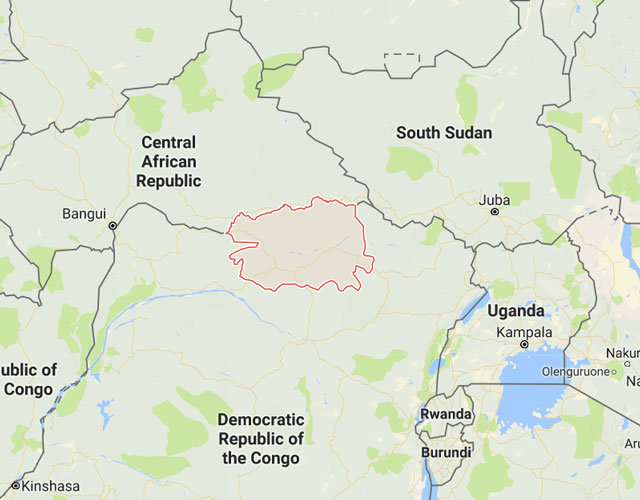
Kinshasa, DR Congo | AFP | The Congolese health minister on Saturday declared the end of an Ebola outbreak in a remote northeastern region of the Democratic Republic of Congo which caused four deaths in the area.
On May 12, officials declared an outbreak of the highly contagious disease, the eighth to date in the sprawling country, in Bas-Uele province — an equatorial forest zone near the Central African Republic.
“I declare the end of the Ebola outbreak in Likati in DRC from midnight tonight,” Oly Ilunga told reporters.
Ilunga said none of the 105 suspected cases had tested positive and that the country had recorded no new cases since June 2.
The incubation period for this highly contagious disease is 21 days.
An Ebola outbreak in 2014 left 11,300 people dead, mainly in west Africa.
The last instance of Ebola in Congo in 2014, which was not linked to an outbreak in neighbouring states at the time, was quickly contained and killed 49 people according to official figures.
That outbreak saw 66 registered cases hit the district of Boende some 800 kilometres (500 miles) northeast of Kinshasa for an official fatality rate of 74.2 percent.
The United Nations at the time saluted the “immense work” DR Congo authorities had put in to contain the disease spread.
In 2013, an Ebola crisis began in Guinea, Sierra Leone and Liberia.
Liberia was the last of those states to be declared clear in January 2016. Congo’s outbreaks have all been in areas not linked to the the West African cases.
The WHO was criticised at the time for responding too slowly and failing to grasp the gravity of the latest outbreak of a disease first recorded in DR Congo in 1976.

In May, the WHO said almost 12,000 people had participated in a ground-breaking vaccine trial the agency organised in Guinean capital Conakry through to January last year.
Final results from the trial published in The Lancet released last December showed the experimental vaccine offered protection against the virus and would help to bolster an early response to future outbreaks.
The WHO led the trial with Guinea’s ministry of health, Medecins sans Frontieres and the Norwegian Institute of Public Health, in conjunction with other international partners.
The vaccine is now awaiting formal licensing clearance.
Ebola is a viral illness whose initial symptoms may include a sudden fever, aching muscles and a sore throat, with subsequent symptoms including diarrhoea and vomiting and, on occasion, internal and external bleeding.
Humans can catch the illness from close contact with infected animals.
Inter-human transmission can then occur through direct contact with infected blood or bodily fluids. Mourners can also catch it if they have direct contact with the bodies of victims at funerals.
42 days have passed after the last confirmed #Ebola patient in #DRC tested -ve for the disease for the 2nd time. https://t.co/0s7lRw0tCr
— WHO African Region (@WHOAFRO) July 2, 2017
–
 The Independent Uganda: You get the Truth we Pay the Price
The Independent Uganda: You get the Truth we Pay the Price



